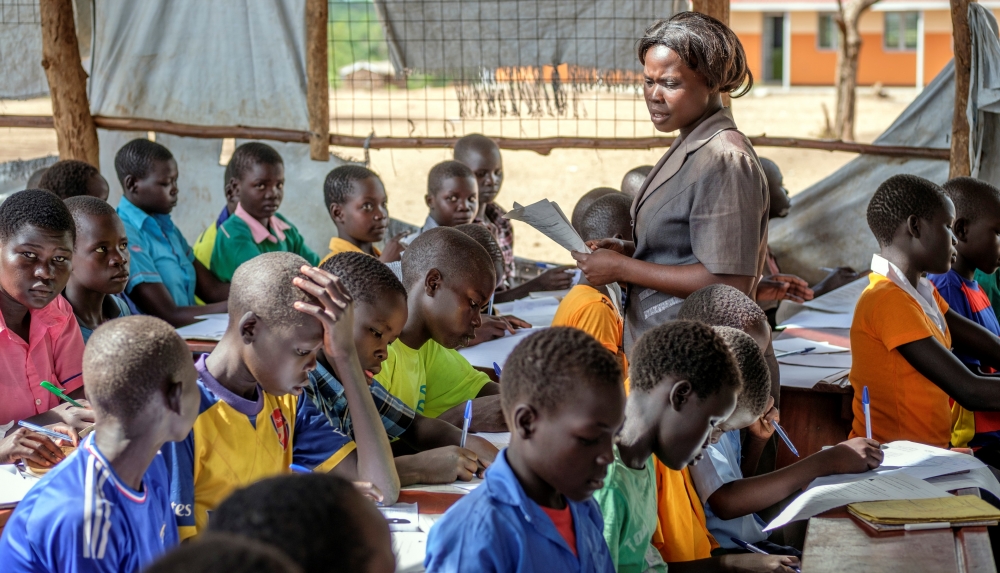Uganda launches Education Response Plan to address “children’s crisis”

This weekend, the government of Uganda, Partners in Development, UN agencies and NGOs launched the Education Response Plan (ERP) in the hopes of providing education to the hundreds of thousands of young refugees in Uganda. The ERP is the first plan of its kind, and if sufficiently funded, would be a positive step in addressing policy regarding refugee education around the world.
According to a report by Uganda’s Ministry of Education and Sports, Uganda hosts over 1.4 million refugees, making it the top refugee-hosting country in Africa and among the top five hosting countries in the world. This humanitarian crisis has been dubbed as a “children’s crisis”, seeing that 61% of the total refugee population are children under the age of 18.
The Hon. Janet K. Museveni, the First Lady of Uganda and Minister of Education and Sports, said:
“This is a children’s crisis. None of these children chose to become a refugee, but they have had their lives ripped apart. Now we must give them the chance of a future."
This chance for a better future comes from access to education. The Plan has been developed to align closely with Uganda’s Education Sector Strategic Plan (ESSP) and aims to improve access to and the quality of education in these refugee-hosting districts. Other goals of the ERP include providing essential learning materials and constructing or repairing classrooms to make schools safer and more accessible. The programme also hopes to bring older youths back into the classroom who may have previously dropped out through the Accelerated Education Programme.
The ERP is a response to the growing need to address education in refugee-hosting communities around Uganda. If implemented and properly funded, this programme would have an impact on thousands of refugee children and their future. Uganda has acted as a model example for all members of the international community while dealing with the refugee crisis. Refugees in Uganda are granted asylum and have access to the same rights as citizens, which includes access to an education.
The AIDF Africa Summit will return to Nairobi in February 2019.
If you’d like to stay informed on the latest updates in aid and development, please sign up for the AIDF newsletter.
Photo Credit: Save the Children, “Restoring Hope, Rebuilding Futures”, 2017















